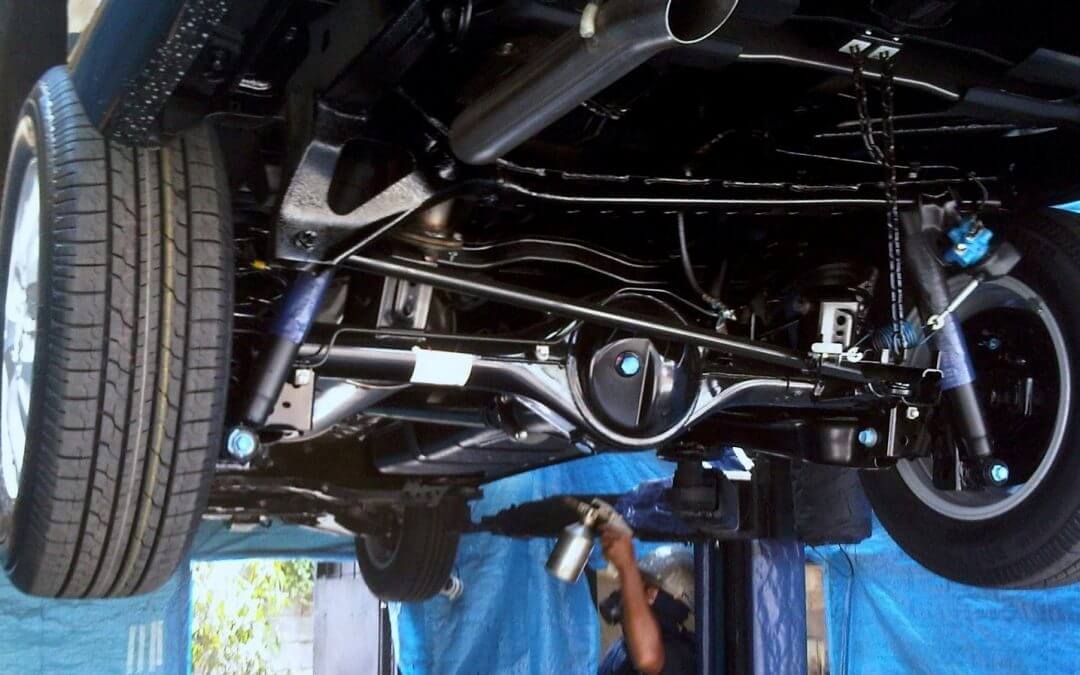Some vehicle owners believe new luxury cars don’t require rust proofing. A number of car dealers say new automobiles no longer need this process. In some cases, dealerships sell rust-proofing to buyers of new cars as an individual dealer’s option. Or, it may be included in a costly bundle sometimes described as an environmental protection package. Fabric safeguard and paint sealant are incorporated in the bundle.
What about luxury car rust proofing?
Many luxury car manufacturers use galvanized bodies to make their products corrosion-resistant. Galvanized steel has a coat of zinc to protect it from oxidation. In fact, zinc is the fourth most extensively-used metal worldwide. Almost ½ of zinc is utilized in galvanizing techniques to prevent iron and steel from corroding. The thin stratum of zinc produces a rust-resistant obstruction. Auto manufacturers adopted this process because of its minimal cost.
Oxidation may not be a serious problem. Treatment methods and metals have evolved over the years. Motor vehicles are protected from corrosion as these are built or assembled in their respective factories. Yet, it doesn’t mean luxury cars are indestructible. For example, an expensive car is damaged in an accident. Unprotected metal is open to the elements so there’s a big chance of rust to set in. Hence, car rust proofing is essential.
In case the zinc coat cracks, the metal at the bottom is at risk of getting tarnished. This is the same for the vehicle’s paint finish. The car can still rust if a sharp stone or pebble is embedded deep into the body paint. The outside of the automobile gets rusty and looks unsightly. The good news is frames of new car models are galvanized. These are secured from breaking off.
For the vehicle owner’s peace of mind, luxury car rust proofing may turn out as a practical and cost-effective option. In other words, people who purchase luxury cars should keep their expensive machines as corrosion-free as possible. At the same time, have your vehicles washed particularly during winter after you drive on brackish thoroughfares. Pressure or automated car wash should be used in washing the underside of your cars.
Nowadays, more “glamorous” materials are used together with galvanized metal in automobiles for heaviness and cost-savings. Plastic, fiberglass, aluminum, and carbon fiber are less likely to become corroded easily compared to steel. However, these are not used for conventional vehicles.
Aluminum is not prone to oxidation so luxury automakers like Jaguar, Audi (for Audi A8) and Mercedes Benz adopted the chassis fabricated from aluminum. Said material is also ideal for weight and long-term dependability. This is the primary selling point of aluminum and carbon fiber as well.
What are luxury car makers doing about corrosion? They focus on the protection of frames and body panels. Electrical areas which include wiring attachments, battery terminals, plugs, and switches are also secured from moisture. These safeguards reduce maintenance and repair costs as well as car breakdown. They also put emphasis on moving mechanical parts’ lubrication such as door hinges, suspension parts and brake cables. Perhaps, one additional factor to consider is Brampton luxury car rust proofing.


